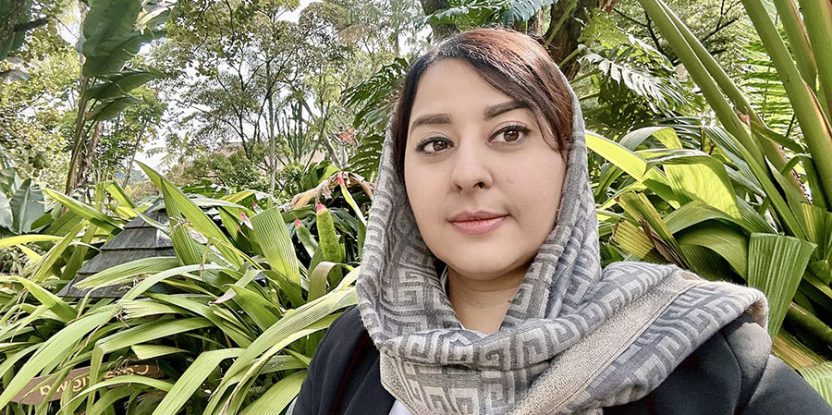Curious to know what it’s like to bring a baby to remote areas while Mom conducts research? How can a female scientist succeed in a male-dominated society? How a woman stays safe during field work? In a series of five blog posts to mark International Women’s Day 2024 on 8 March, five women scientists-researchers working with the COLANDS initiative – Collaborating to Operationalise Landscape Approaches for Nature, Development and Sustainability – answer these and many other questions about working as researchers and academics. Their responses have been edited for clarity and brevity.
Sima Fakheran is a visiting Associate Professor in the Faculty of Forestry at Canada’s University of British Columbia, and an Associate Professor of Environmental Sciences at Isfahan University of Technology, Iran. She completed her PhD at the University of Zurich, Switzerland, and has been Head of the Swiss desk at the Iranian Leading House for Science and Technology Collaboration with Switzerland since 2017.
She told Forests News:
“As a young student in Iran, I studied environmental sciences so that someday, I could work with the United Nations Environment Programme to help in my own country and all over the world.
Unfortunately, there were no role models and no female professors in our department when I was a student at Tehran’s Isfahan University of Technology, given the political and social realities in my home country – particularly for women. In fact, today there are still only a few women in these roles. Seeing that, I considered teaching: as a professor of environmental sciences, I could offer an inspiring role model for many female students studying natural resources in universities in Iran.
However, after winning a scholarship to earn my PhD at the University of Zurich in Switzerland, I found that working with an excellent research team on biodiversity was so inspiring, I decided to instead become a scientist. I saw this as another path for offering a positive role model for students, particularly women.
Disappointingly, the need for role models is stronger than ever. A significant gender imbalance persists, particularly at senior management and executive levels. Recruitment of women to senior positions remains unequal in academia, for example, even though more women have master’s and doctoral degrees than men. As a result of this imbalance, the academic system is losing more and more women at each stage of their careers, which reinforces this negative cycle.
Still, there is much to be positive about. Graduating from universities in two very different regions – Europe and the Middle East – working in different languages, different environments and cultures, has broadened my perspective and given me even more to share as a mentor.”
Acknowledgements
COLANDS is part of the International Climate Initiative (IKI) and is funded by the German Federal Ministry for the Environment, Nature Conservation and Nuclear Safety (BMU). PhD research that is part of COLANDS is hosted at the Institute for Social Science Research of the University of Amsterdam and the University of British Columbia.
For more information about COLANDS work, please contact James Reed at J.Reed@cifor-icraf.org.
We want you to share Forests News content, which is licensed under Creative Commons Attribution-NonCommercial-ShareAlike 4.0 International (CC BY-NC-SA 4.0). This means you are free to redistribute our material for non-commercial purposes. All we ask is that you give Forests News appropriate credit and link to the original Forests News content, indicate if changes were made, and distribute your contributions under the same Creative Commons license. You must notify Forests News if you repost, reprint or reuse our materials by contacting forestsnews@cifor-icraf.org.
